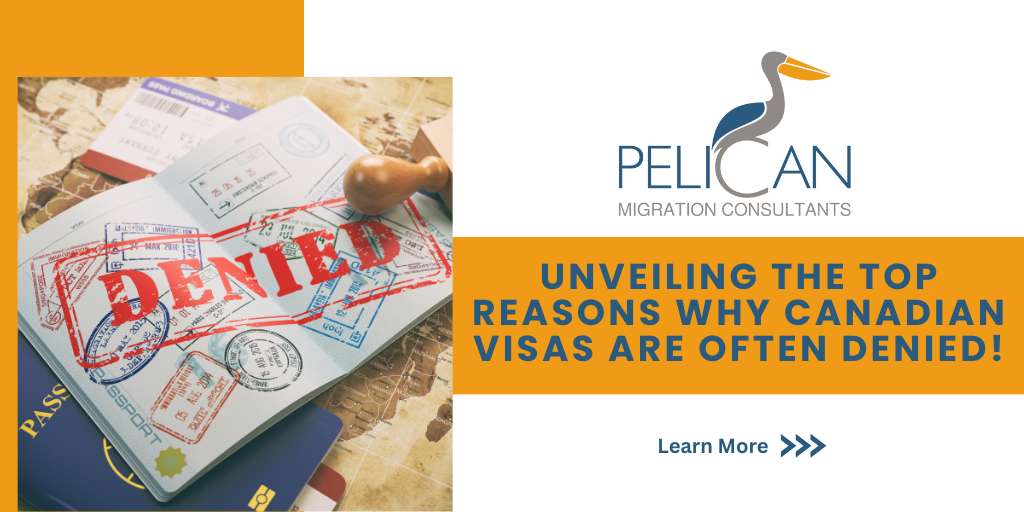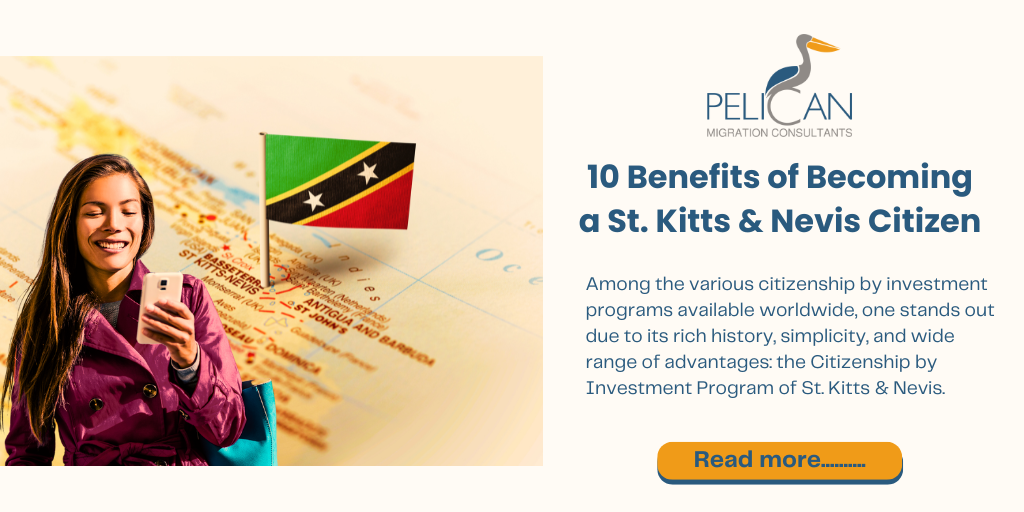
Thousands of people who apply for visas to Canada each year are denied for a variety of reasons, many of which are completely preventable. These unfortunate events often leave candidates and their families feeling betrayed and upset. Canada offers a range of citizenship opportunities to foreign nationals; occasionally, it can be challenging to comprehend the process. For those who are considering or are in the process of applying for permanent residency in Canada, the following list of numerous typical grounds for rejection can be helpful.
Eligibility
There are a few basic requirements that must be met before you can apply for a travel visa. Ideally, you should take the following actions:
- Have a valid travel document, like a passport
- You must be in perfect health and not have any felony or immigration-related convictions in order to be eligible.
- Convince a visa agent that you have ties to your home country, such as a job, a place to live, financial assets, or family members who will permit you to go back.
- Convince the visa inspector that you intend to depart Canada at the end of your visit.
Who cannot apply for Visa in Canada:
People with a criminal record, either small or significant, may not even be eligible for the visa. In addition, those with psychiatric or medical conditions are not eligible to apply for a Canadian visa unless they are scheduled for a medical appointment.
Main causes of Canadian visa rejections:
1. Health Concerns
Every Canadian citizen and their family is required to undergo a health screening with a specialist who has been approved by CIC. Medical issues may be the reason for rejection. In Canada's universal medical system, applicants requiring treatment for HIV or kidney disease, for instance, would be viewed as potential issues. Anyone with a health condition may be denied by CIC at its discretion. However, there are ways to circumvent ineligibility due to health. For example, a document from a consultant on the illness could support a person's case and help them avoid being denied.
2. Undetailed invitation letter:
Not presenting a legitimate invitation letter from a friend or relative in Canada is another factor that could cause your visa application to be denied.
To support your TRV travel visa request as part of your grounds for a Canadian visa and to demonstrate that you will have access to food and lodging in Canada, it is a wise choice if you are asking for a travel visa to acquire an invitation from your peers (or relatives) in Canada.
It should be clear from the offer statement that this person is providing you with free food and lodging for the duration of your trip in Canada.
It should confirm the dates of your journey to Canada, along with your full name and birthdate. In addition, in the event that the IRCC requires verification, the sender must verify receipt of the invitation message and supply a personal phone number and address.
3. Academic Success
In the event that you perform poorly academically, your application for a student visa to Canada may be denied.
Visas are being granted by officials in order to verify the consistency of previous academic performance. Though getting a permit requires having a high GPA, the application procedure is not over yet. Your ability to speak English is taken into account when determining the status of your visa request, as demonstrated by your IELTS score. If your score is low and your marks are inconsistent, the visa inspector can question your ability to handle classes taught in English.
Although it may not seem simple, following these procedures can help you expedite the process of acquiring a Canadian visa.
4. Illegal Status in Your Country of Origin:
Canada is unlikely to believe that you will abide by its laws and policies if you are living there illegally.
The authorities may believe that, given your violent past, you are unable to adhere to international safety standards. However, depending on the seriousness of your offense and how long ago it happened, you might still be able to enter Canada.
A few more factors that could result in a visa rejection are:
- Unable to provide accurate and full supporting paperwork;
- insufficient income to cover the cost of your travel to and stay in Canada;
- travelers may also be refused entrance since Canada's borders were temporarily closed during the coronavirus outbreak.
Conclusion:
Understanding the common reasons behind Canadian visa denials is crucial for prospective applicants. From health concerns to academic performance, various factors can influence the outcome of your application. Ensuring you meet eligibility requirements, providing adequate documentation, and addressing potential issues preemptively can enhance your chances of a successful visa application. Ultimately, thorough preparation and adherence to immigration guidelines are essential for a smooth visa application process.
How Pelican Migration Consultants Can Help Overcome Visa Rejection
Pelican Migration Consultants offers personalized guidance and support to individuals who have faced visa rejection, providing them with expert assistance in understanding the reasons behind the denial and strategizing ways to address them effectively.
- Thorough Evaluation: Our consultants conduct comprehensive assessments of each client's profile to identify reasons for visa rejection.
- Tailored Solutions: We devise personalized strategies to address weaknesses in visa applications and strengthen candidacy.
- Documentation Assistance: Pelican Migration Consultants assist in compiling necessary paperwork and ensuring completeness and accuracy.
- Ongoing Support: Our team offers continuous assistance and guidance throughout the immigration process, addressing any concerns or obstacles that may arise.


